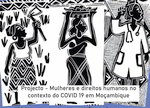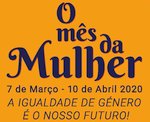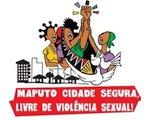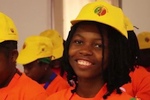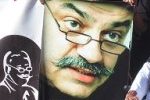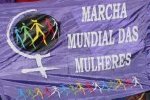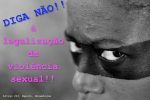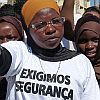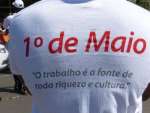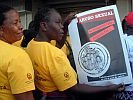Presenting WLSA Mozambique
WLSA (Women and Law in Southern Africa Research and Education Trust) is a regional non-governmental organisation (ONG) that conducts research about women’s human rights in seven countries of Southern Africa: Botswana, Lesotho, Malawi, Mozambique, Swaziland, Zambia and Zimbabwe.
WLSA Mozambique defines itself as a feminist organisation. This means that:
- It recognises the existence of an unjust situation in society, where women have less possibility of enjoying their citizenship rights, less access to resources and to decision-making authorities.
- It explains this situation of inequality through a theory on gender social relations that takes into account the power dimension in relations between women and men that are structured in the context of systems with patriarchal domination.
- It seeks to act in defence of gender equality taking into account the fact that change can only be effective if the patriarchal power structures, that ensure and reproduce the subordination of women, are shaken.
WLSA thus defines its vision as a society with social justice and equality, and is committed to defending human rights in general. It aims to help build a world with fewer asymmetries, where no-one is excluded on the grounds of sex, race, ethnicity or religion, and where each individual can enjoy her/his rights as a citizen.
Mission
The mission of WLSA Mozambique is to help identify and disseminate the favourable contexts, the critical areas and the obstacles to equality of rights and opportunities between women and men in the country, promoting changes in the law and in public policies, in access to and the administration of justice, and in social practices. It argues that intervention must empower women, so that they have the means and opportunities to fight discrimination.
History
Created in 1989, WLSA (Women and Law in Southern Africa Research and Education Trust) is a regional organisation that does research on the rights of women in Southern Africa. In the beginning it covered six countries and later seven. WLSA developed a philosophy whereby research leading to knowledge and thus an understanding of how gender social relations are built and expressed, interacts with action that is the outcome of the knowledge obtained and is the basis for research.
Until the early years of the 2000 decade, the organisation´s structure was based on strengthening the regional component, with the definition of common strategies for the member countries and centralized funding. In addition, most of the national workshops had close relations with higher education institutions (for example, in our country the organisation was a project in the Department for Studies, Women and Gender in the Centre for African Studies in Eduardo Mondlane University) and the prevailing political context in the region was the single party system, resulting in a monolithic perspective on human rights. The strategy adopted helped to reduce constraints on the organisation´s activities, making it a forum discussing ideas and projects.
At that time decisions on the research topics and actions in each phase (usually a cycle of 30 months) were discussed in order to achieve consensus among the researchers in the national workshops. There was a periodic evaluation involving the presentation of the research results and activity reports. This methodology of involving all researchers in analysing each other’s work produced common approaches to the human rights of women and helped strengthen a regional perspective in advocacy activities, particularly from the late nineties onwards. The work of the national offices and the regional organisations was monitored and evaluated through a regional board comprising respected personalities in the academic field in each member country and donors.
Early in the 2000 decade a number of factors changed the context of WLSA activities. The main ones were a drastic reduction in funds due to changes in donor strategies and the appearance of a new political reality. These circumstances meant that the organisation was faced with the challenge of scaling back its strategies, while at the same time maintaining the regionality that all the national workshop felt provided added value and was a unifying factor in the struggle for equal rights for women and men.
WLSA Mozambique became independent of the university, with its own legal personality and official recognition. After being registered as an association, as required by law, its corporate bodies were established in April 2003.
Context
WLSA Mozambique, one of the seven country offices with a research cycle that started in the early nineties, has tried to contribute to knowledge about the human rights of women in Mozambique, based on the theoretical assumption that social relations between men and women are structured by power directed towards the continuation of women´s subordination. WLSA has conducted research with this perspective and has contributed to changes in legislation. In particular, it played an active role in the drafting, approval and dissemination of the Family Law and in drafting the Bill Against Domestic Violence.
Following the changes at regional level – the termination of its funding – we had to rethink our work at national level, both the search for and the adaptation of activities to the national reality and the profiles of the staff. In the case of Mozambique there was a simultaneous need for institutionalisation (following the separation from the Eduardo Mondlane University) and a response to the changes in the region.
Organisational Culture
WLSA Mozambique is a feminist organisation that is based on the principles and values that guide its activities and that characterize the discourse and social practice of its members.
The defence of women’s human rights is the foundation of WLSA’s work. Emphasising a gender approach to knowledge about social inequality, our organisation argues that the struggle by women must be understood in a global context of the construction of a more just society. For these reasons, WLSA’s work has always been directed towards identifying obstacles that impede access to and the exercise of rights by women, and to promoting women´s access to justice, through knowledge of the possibilities offered by the law and promoting activities in the fight for equality.
In this sense, WLSA defines itself as an organisation governed by ethical principles with regard to both its internal democracy and also its relations with similar organisations fighting for women´s human rights in the national and international context.
* * *







 Information in English
Information in English